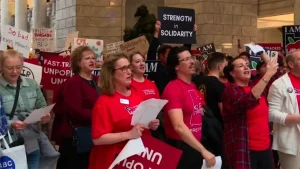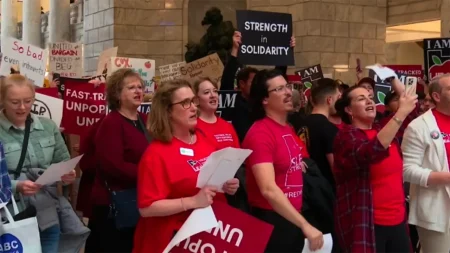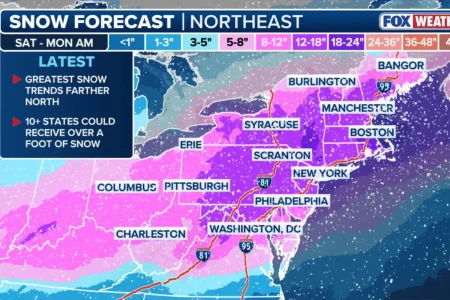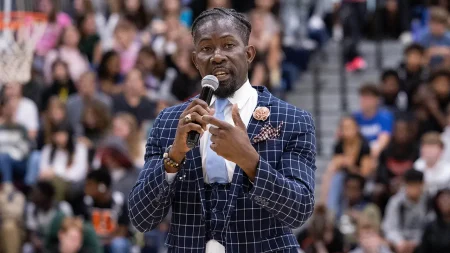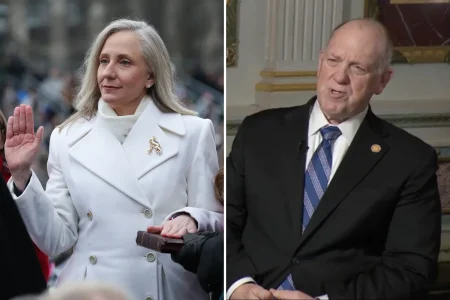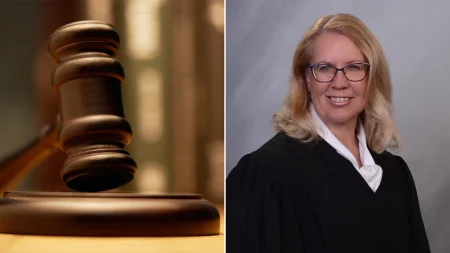From Politics to Playlists: A Closer Look at Zohran Mamdani’s Musical Knowledge
In a lighthearted moment that humanized the often serious world of politics, mayoral race front-runner Zohran Mamdani recently participated in a musical quiz that revealed both his strengths and blind spots in New York’s rich musical heritage. The 33-year-old politician, who appeared on the Track Star podcast hosted by Jack Coyne, was challenged to identify songs from legendary New York musicians—a test that would prove illuminating for voters curious about the cultural awareness of their potential future mayor. The segment, posted on Instagram Thursday, offered a rare glimpse into Mamdani’s personality beyond policy positions and campaign promises, showing his willingness to engage with popular culture and admit his knowledge gaps with refreshing candor.
Mamdani demonstrated impressive familiarity with certain segments of New York’s musical landscape, correctly identifying tracks from contemporary icons like Jay-Z and The Strokes, as well as hip-hop legends Mobb Deep. These correct answers weren’t particularly surprising given Mamdani’s own background in music—he previously created hip-hop under the moniker Mr. Cardamom, even releasing a track called “#1 Spice” which he quickly recognized during the quiz. This connection to hip-hop culture highlights an interesting dimension of Mamdani’s identity that might resonate with younger voters and those who appreciate seeing politicians with diverse interests and experiences outside the political arena. His ability to engage with these cultural touchpoints suggests a potential to connect with constituents across different demographic groups and subcultures within New York’s diverse population.
However, the quiz revealed a notable gap in Mamdani’s musical knowledge when he failed to recognize Billy Joel’s iconic 1976 hit “New York State of Mind,” a song that many consider an unofficial anthem of the city. Despite Coyne offering helpful hints about the pianist’s Long Island origins, Mamdani remained unable to identify the classic track, candidly admitting it wasn’t part of his regular playlist. This moment of honesty—”As a politician, I think it’s important to be honest”—showed Mamdani’s willingness to acknowledge his limitations rather than pretending to knowledge he doesn’t possess. While some traditional New Yorkers might raise an eyebrow at a mayoral candidate unfamiliar with such a quintessential New York musical reference, others might appreciate his authenticity in an era when politicians often feel pressure to project omniscience.
The generational and cultural divide revealed in this musical quiz reflects broader questions about how we define “New York culture” in a city that constantly reinvents itself. Billy Joel’s piano-driven ode to the city represents a certain era and perspective of New York that resonated strongly with previous generations, while Mamdani’s familiarity with hip-hop tracks from artists like Jay-Z and Mobb Deep speaks to different, more recent cultural touchpoints. Neither perspective is more legitimately “New York” than the other—instead, they represent the layered, complex cultural identity of a city that encompasses countless subcultures, eras, and artistic expressions. Mamdani’s musical preferences and knowledge gaps might actually reflect the city’s ever-evolving nature rather than any deficiency in his appreciation for New York’s heritage.
Beyond the specific songs identified or missed, the podcast segment offered voters a chance to see Mamdani engage in a light-hearted interaction that humanized him outside the often rigid confines of campaign appearances. When Coyne playfully expressed hope for a revival of Mamdani’s music career, the candidate replied with self-deprecating humor: “You’re gonna be holding for a while.” This exchange highlights how cultural touchpoints like music can create spaces for politicians to connect with voters on a more personal level. While policy positions certainly matter more in governance, these glimpses of personality help constituents assess the character and relatability of those seeking to represent them. Mamdani’s willingness to participate in such an unscripted quiz demonstrates confidence and an openness to being seen as a multidimensional person rather than just a political candidate.
As the mayoral race continues, this musical interlude serves as a reminder that our political leaders are products of their own unique backgrounds, generations, and cultural influences. Whether voters consider Mamdani’s inability to recognize “New York State of Mind” a concerning gap in his cultural literacy or simply an honest reflection of different generational touchpoints will vary depending on their own relationship to the city’s musical heritage. What seems most significant about the interaction isn’t the specific songs Mamdani could or couldn’t identify, but rather his approach to the challenge—embracing the opportunity to show his authentic self, acknowledging his limitations, and demonstrating that political candidates need not pretend expertise in areas where they have none. In a political landscape often criticized for inauthenticity, such moments of genuine human connection might resonate with voters seeking leaders who bring their whole, imperfect selves to public service.


